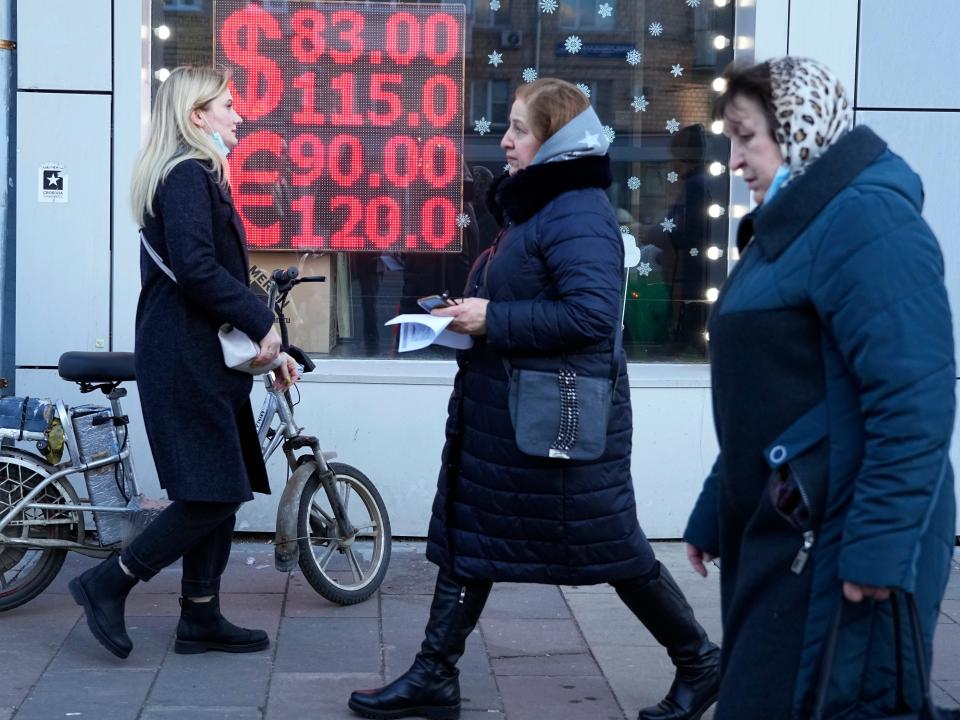The Russian ruble has hit an over 2-year high even as the EU plans to intensify sanctions against the country with an oil embargo

The Russian ruble closed 6.6% higher on Wednesday — a two-year high against the US dollar.
The currency had sunk to a record low in early March due to sweeping sanctions over the Ukraine war.
The Kremlin has been propping up the ruble via capital controls.
The European Union may be preparing to ban Russian oil, but that hasn't put a damper on the ruble — which has surged to a high not seen in over two years.
On Wednesday, the Russian ruble closed 6.6% higher against the US dollar at 66.30 — its highest level since March 2020, according to Reuters' records.
The European Commission President Ursula von der Leyen proposed a phased embargo on Russian oil on the same day in a new package of sanctions that also targeted Sberbank, the country's largest bank.
The ruble's bullish trend is in stark contrast to the currency's situation in early March when it sank to a low due to a slate of sweeping sanctions imposed by the US and its allies against Russia for its invasion of Ukraine.
The Kremlin has countered the hits to its financial system by hiking interest rates, banning foreigners from selling stocks, and demanding payment for gas in rubles. The energy powerhouse has also implemented strict controls, including how much money people can move out of Russia and ordering exporters earning foreign currency to convert 80% of earnings abroad into rubles, Insider's Harry Robertson reported in April.
"Russia's efforts to prop up the ruble appear to be working despite sanctions imposed by Western countries aimed at cutting the Kremlin's access to external resources and crippling the nation's ability to fund its war against Ukraine," wrote New Zealand brokerage BlackBull Markets in a note on Monday.
Despite the ruble's strength, the Russian economy is set for its most significant contraction in about three decades amid hard-hitting sanctions from the US and its allies over the war in Ukraine.
Various Russian government agencies are forecasting on-year GDP declines this year to be in the range of about 8% to more than 10%, according to Interfax, citing former finance minister Alexei Kudrin last month. Comparatively, the World Bank expects the Russian economy to contract 11.2% in 2022.
Read the original article on Business Insider

 Yahoo Finance
Yahoo Finance 